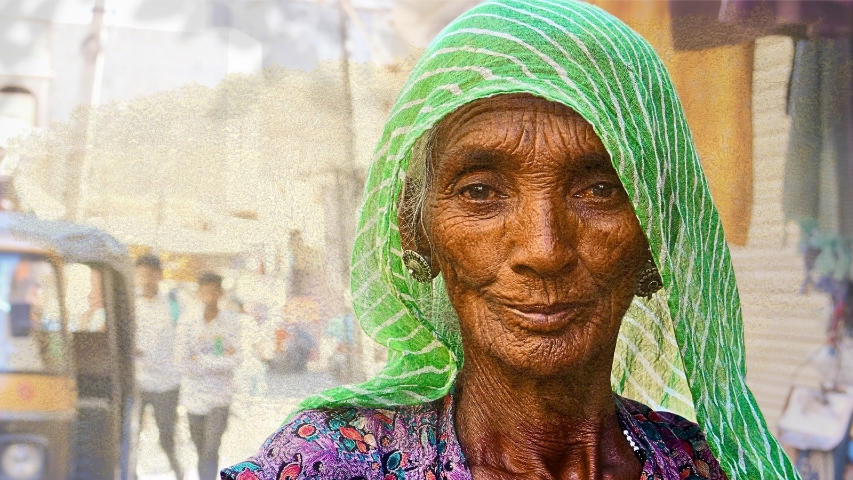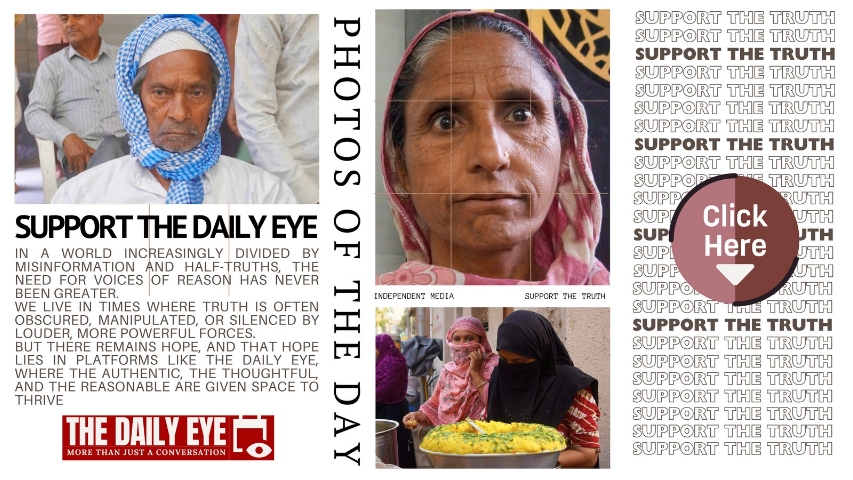-853X543.jpg)
THOUGHT FACTORY: A LEGACY OF WAR AND INNOCENCE
by HUMRA QURAISHI November 3 2024, 12:00 am Estimated Reading Time: 4 mins, 40 secsIn a world that promised an end to fascism and brutality, we see nations embroiled in modern ethnic cleansings, where civilians, including children, bear the heaviest burdens of war. Humra Quraishi writes…
Photography: Vinta Nanda
In a world gripped by modern-day genocide and escalating civilian crises, the unchecked use of power in conflict zones raises urgent global concerns about human rights, ethnic cleansing, and the plight of displaced refugees. Nations targeting civilians under the guise of counterterrorism and waging wars on densely populated areas threaten countless innocent lives, especially children, who bear the scars of relentless bombings, poverty, and political abandonment. As tragedies unfold across the Middle East and affect civilians worldwide, the images of war-torn communities, displaced refugees, and the erasure of ancient cultures reveal a stark humanitarian crisis. With every conflict that undermines diplomatic efforts, the question looms: Will our global community rise to end such barbarism, or are we destined to repeat the horrors of history?
Civilian Casualties Under the Pretext of Counterterrorism
Today’s war-torn regions highlight a haunting repetition of history, where governments justify targeting civilians to eradicate terrorism. Innocent men, women, and children are perishing, swept up in crossfire with no stake in these wars. Those in power claim terrorists hide among civilians, yet in modern times, such justifications feel increasingly hollow, leaving the impression that power simply veils barbaric acts. In the age of supposed peace and human rights, we are witnessing a brutal genocide under the guise of counter-terrorism—a tragic reminder that the horrors of history may never be fully behind us.
The Long Shadow of Western Intervention
The current instability traces back to moments like the 1990s U.S. incursion into Iraq, which permanently altered diplomatic relations across the world. Before that, Iraq’s presence in India was robust; its embassy buzzed with diplomats, and its envoys actively engaged with Indian citizens. However, after the “mother of all wars” in the 90s, the American and Allied forces wreaked havoc on Iraq under the pretext of finding weapons of mass destruction—a search that ultimately found nothing but left destruction in its wake. The fallout was not only physical but cultural, as ancient ties and diplomatic traditions were dissolved.

A Lost Connection with the Middle East
India once shared a strong bond with West Asia, largely driven by leaders like Nehru and Indira Gandhi, who aligned with Arab nations in support of Palestine. Today, however, this connection has faded. Press conferences of passionate Palestinian envoys and public receptions for leaders like Yasser Arafat are now memories from a time when India maintained a distinct stance on Middle Eastern conflicts. Instead, we see a political tilt, highlighted by the 2017 visit of the Indian Prime Minister to Israel, marking a shift in diplomatic allegiance.
The Tragedy of Youth in Conflict Zones
Caught in the crosshairs of power struggles and military operations, countless Arab children lose their lives or endure devastating trauma. Their images flood our screens—Syrian, Palestinian, and Yemeni children, eyes heavy with hopelessness, in search of safe refuge. These children, often forced to flee, face rejection or disdain even in countries they escape to, labelled as intruders or beggars. The European Right-Wing lobby fuels animosity towards these young refugees, further endangering their safety. From the heartbreaking image of Aylan Kurdi to Omran Daqneesh, these innocent faces become haunting symbols of the humanitarian crises spurred by relentless war.
Refugees at Home and Abroad
While refugee children from Arab lands have not yet reached Indian shores, internal displacement is rising here as well. Vulnerable communities across India are being forcibly uprooted, displaced by political and land mafias. Made to flee their ancestral homes, these internally displaced individuals now experience life as refugees in their own country, echoing a worldwide pattern of human suffering amid political agendas.
CHILDREN OF PALESTINE!
On this upcoming Children’s Day, November 14, focus ought to be on the children of Palestine, facing the most traumatic childhood; each day dripping with sorrow in the backdrop of killings and more killings. The ongoing bombardments and targeted attacks on them and on their homes, tents, shelters, schools, mosques, and hospitals by Israeli forces.
Leaving you, readers, with this verse of Faiz Ahmed Faiz - Song for a Palestinian Child. This verse is tucked in the volume A Song For This Day - 52 poems of Faiz Ahmed Faiz (Sang-E-Meel Publications). Translated from Urdu to English by Shoaib Hashmi, accompanied by images from the works of Faiz’s daughter Salima Hashmi, the verse stands out as a testament to an undying struggle:
‘Song For A Palestinian Child’ –
Be still child! For your mother too is still, in sleep/Having poured out all her pain in tears/Be still child! For it is but a moment since/Your father laid down his burden of woe/Be still child! For your loving brother/Has left the home of his fathers’/To go seeking the beautiful butterfly of his dreams/And your sister too has left the hearth/To set up home in an unknown land/Be still child! For here, in your little courtyard/They have bathed the lifeless sun of days/And interred the lifeless moon of the night/Be still child! For your mother and father/And brother and sister/And the sun and the moon/If they hear you weeping/They will weep with you, and you with them/And if you smile, then perhaps/One day, transfigured/They will all come back, to be with you.





-173X130.jpg)



-173X130.jpg)
-173X130.jpg)
-173X130.jpg)
-173X130.jpg)